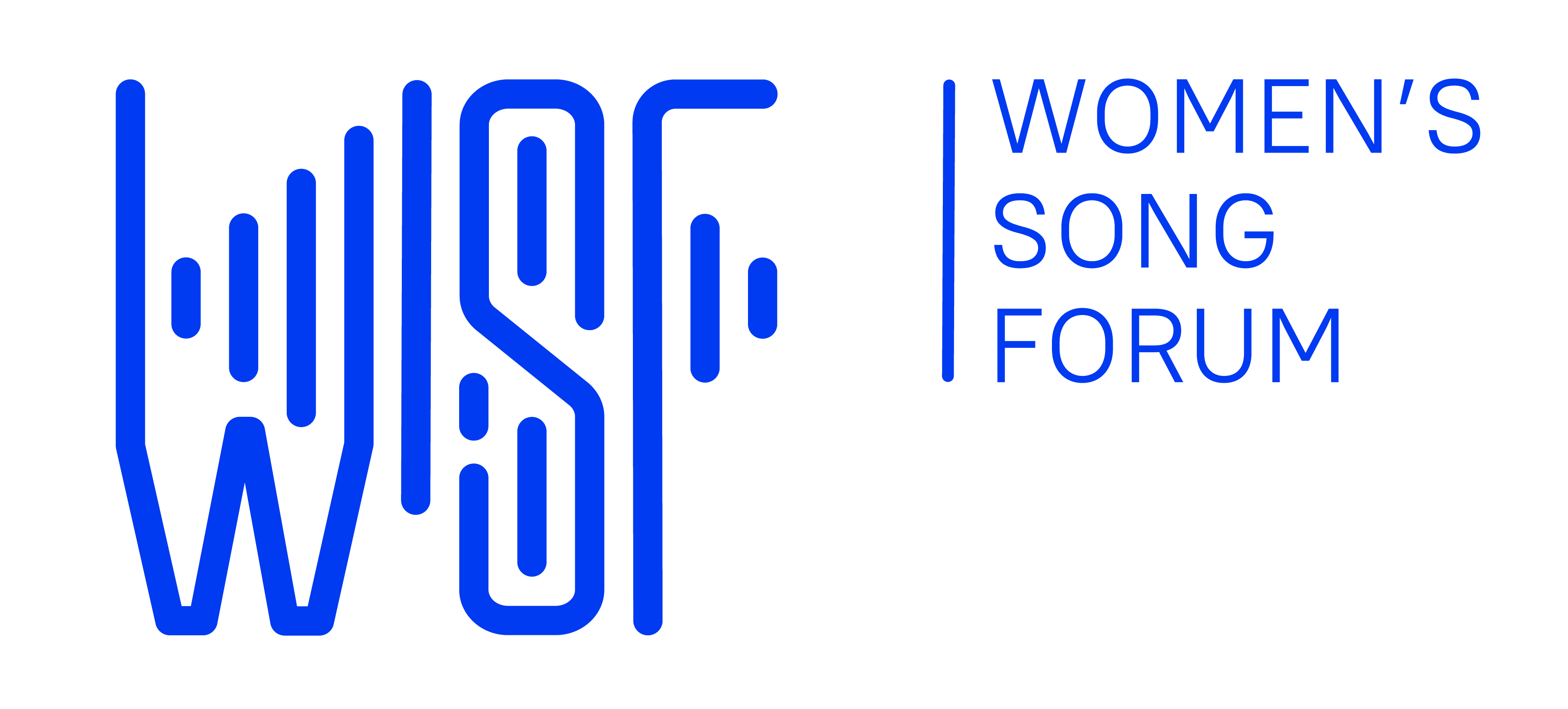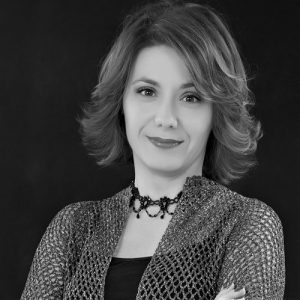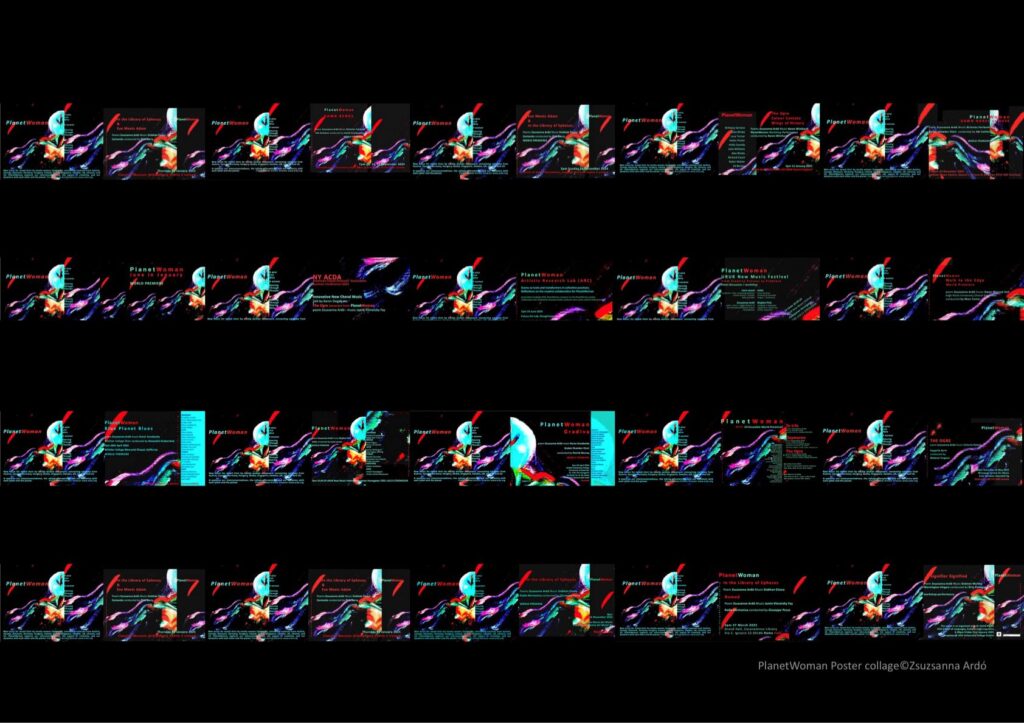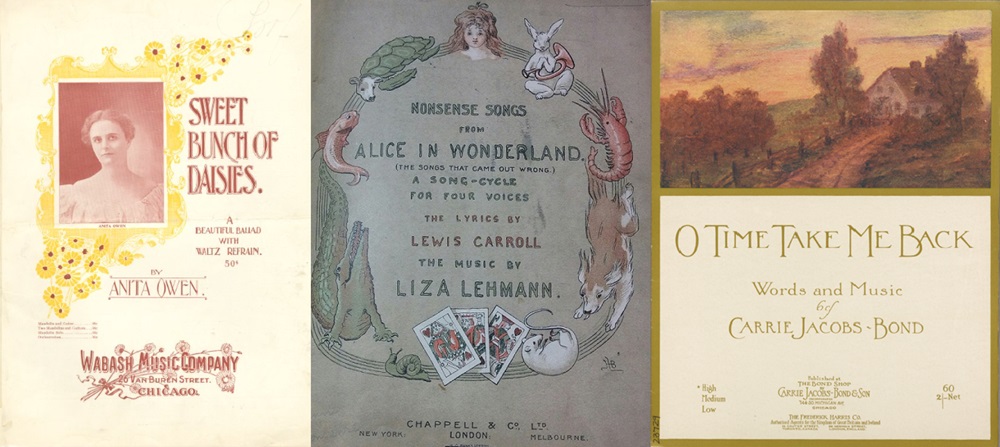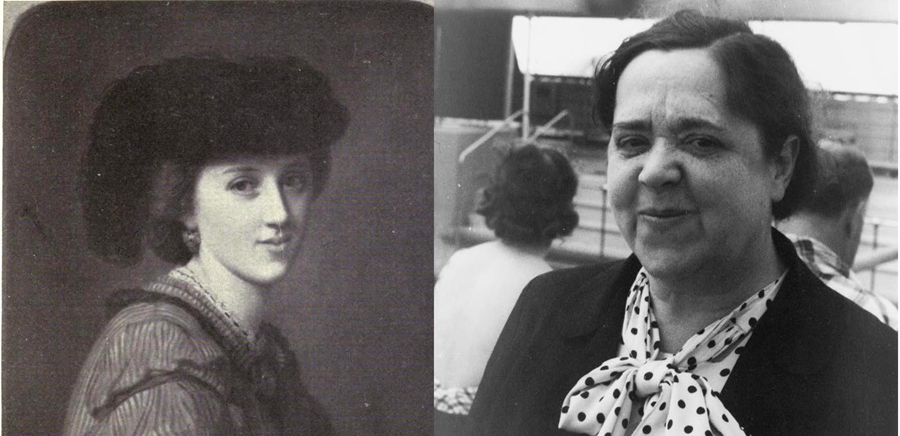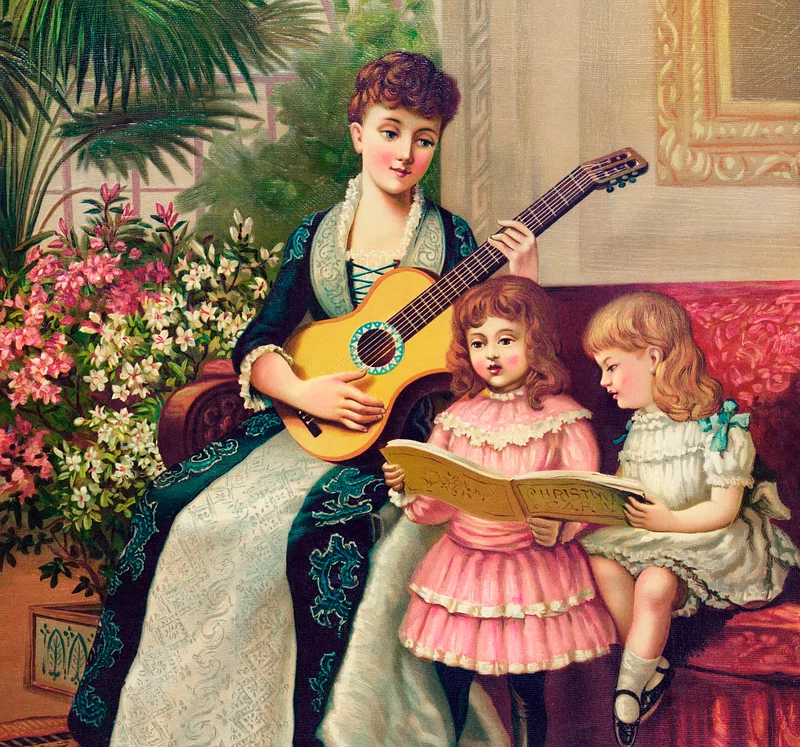Two concerts next fall, part of the music project PlanetWoman, will explore our relationship with the planet that sustains us, including dark counterpoints of these dynamics: recent and present wars – and climate change. I had a privilege to speak with the woman who created this project, Zsuzsanna Ardó, a visual artist and writer whose work has inspired many composers. Building on her long-standing work on climate change, Zsuzsanna started PlanetWoman as a series of artworks, exhibitions and art installations, including the stunning “PlanetWoman Torso” exhibited at UNESCO HQ in Paris in 2019. This project is inspired by the multidisciplinary work of one of the very first woman composers, Hildegard of Bingen, who speaks across the centuries to us today: “All nature is at the disposal of humankind. We are to work with it. For without we cannot survive.”
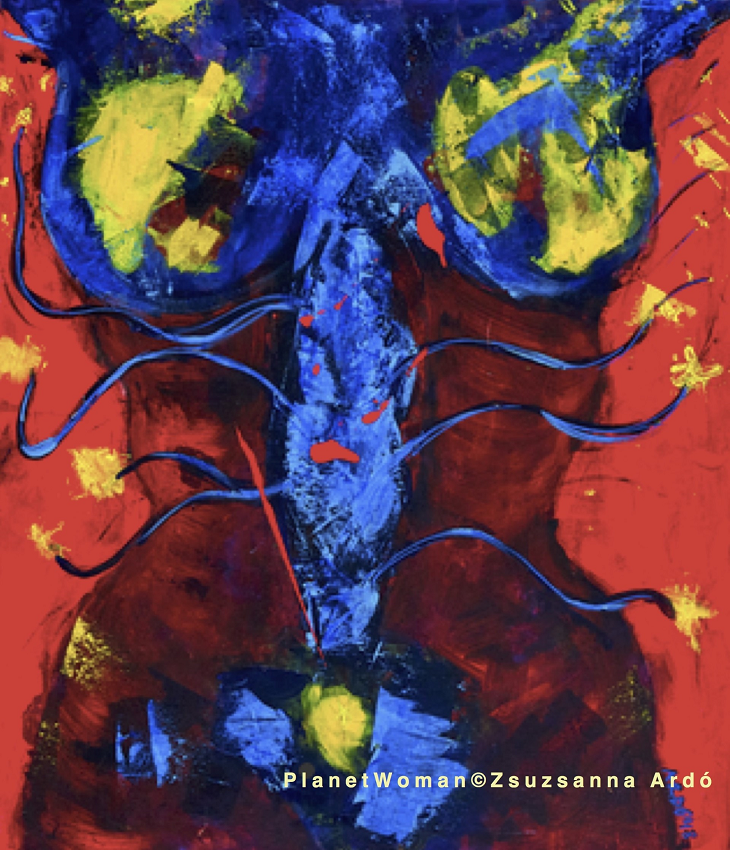
More recently, Zsuzsanna Ardó has turned to writing and curating the PlanetWoman music project, connecting (mostly) women creative collaborators from Austria, Canada, Serbia, Singapore, UK, Ukraine, and US. The concert takes its title from her poem, “PlanetWoman,” and it resonates with the work of Hildegard of Bingen to address the many interconnections between us and nature, our environment.
I was curious to hear from Zsuzsanna and her creative collaborators during the process of curating and shaping such an ambitious transnational event. What was it that has drawn them to the project, what issues have they wanted to highlight, what were the common threads? The thoughts I convey below are theirs.
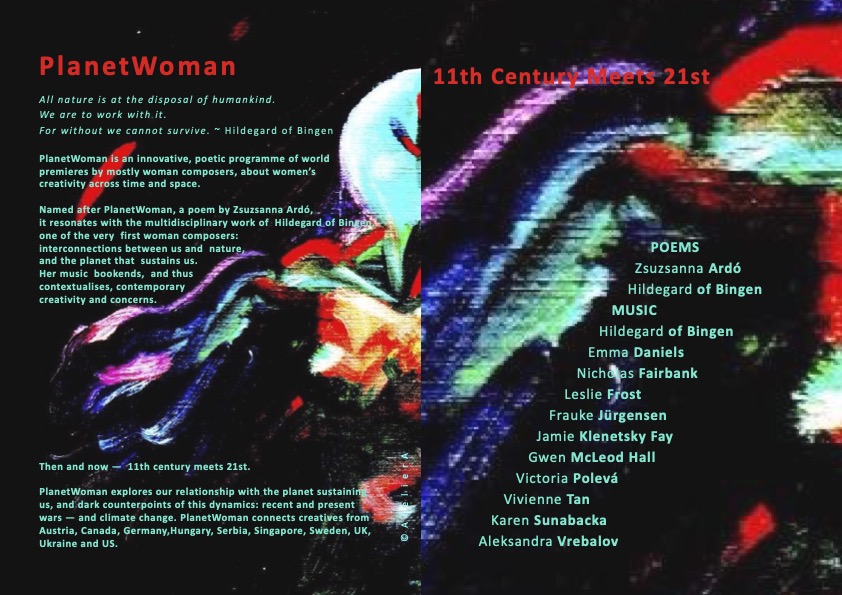
Gwen McLeod Hall beautifully articulated the feeling of joy all the participants expressed at being able to connect with other creative individuals across the world. She spoke of lived experiences, both shared and unique; the privilege of joining artistic, metaphorical hands with fellow human beings; the challenge of honoring another’s heart and vision which have been entrusted to one’s own creative soul – all aspects which drew her to Zsuzsanna Ardó’s PlanetWoman. Addressing the questions of identity that permeate the thoughts of all the artists involved, Hall is composing music to Ardó’s poem “Walk to the Edge of Me,” trying to find the answer to what is the “edge of me?”
Moving us away from the individual to shared, universal questions, Jamie Klenetsky Fay is setting Ardó’s “Named,” a poem about war and historical memory. When even a person’s surname is lost to history, how can we honor them? Jamie’s “Named” uses a call-and-response style to emphasize the text, and therefore, the subject’s humanity. Similarly, Viktoria Polevá, from Ukraine, will give a personal account of war in her setting of Ardó’s poetry.
“Named” was sung here by Emma Daniels, a composer as well as singer. For Ardó’s PlanetWoman project, Emma is composing a diptych that sets to music her poems “Ox…Oxy… Oxym…?” and “PlanetWoman.” Continuing a question of identity, “Oxymoron,” a more comic piece full of irony, focuses on multiple clashing points of view about who women are or who they should be. On the other hand, “PlanetWoman” is optimistic, joyful, and almost euphoric, celebrating women as united with nature.
We can find an interesting perspective on both the issues of identity and our connection with nature in Karen Sunabacka’s work drawing on her Métis and mixed European heritage and her deep roots in the Red River Settlement (what is now known as Manitoba, Canada). She is composing “Blue Planet Blues,” drawn to it by the theme of water and how important it is for our planet’s health – and therefore ours too.
Another common thread among the artists is a sense of admiration for the power of woman and the need to celebrate it. Frauke Jürgensen spoke of the awe she feels for female composers of the past and the steep hurdles they had to overcome. She found PlanetWoman a timely project, since it is clear that we cannot be complacent about our gains in this respect, and there are women artists in many places in the world whose voices are still endangered. Fittingly, Frauke’s chosen poem, “Measuring Mystery,” speaks of the ongoing acts of exploration, balance, and discovery of situating the self within the universe.
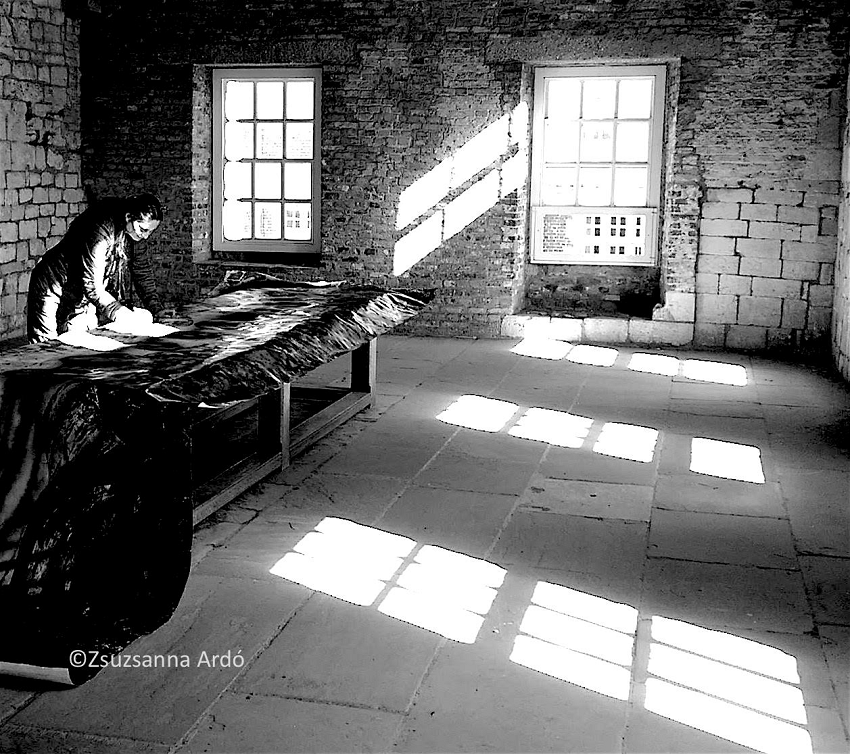
Aleksandra Vrebalov chose the poem “Like Apples” to celebrate the process of liberation; through the symbolism of uncanny sights, surreal tales or forbidden kites, the composition reflects the yearning for freedom, encouraging the cultivation of imagination, free thinking and the planting of transformative ideas. Amidst an idyllic gaze upon life, a stark contrast emerges. It reveals the strength and resilience (of women) in the face of adversity. Continuing the thread of empowerment is the poem “I Am the Key,” being set to music by Vivienne Tan. The key symbolizes many things – opportunities, the valuation of the self – hoping to empower and remind us that we stand together, and that we are possible.
Leslie Frost highlights creativity that allows artists to simultaneously look forward and backwards, letting us bring forth ideas and celebrate our common humanity across time. She is composing “To Life,” a choral work set to poetry by Zsuzsanna Ardó from her work, Five Haiku Triptychs. Leslie is also creating a setting of the poem “Art?Works!” Inspired by the ‘concrete poetry’ text arrangement of this poem, the form of the musical work involves singers placed throughout the performance space. “Art?Works!” includes a quote by Leonardo DaVinci and the choral work has sections modelled after the music of Hildegard of Bingen.
Finally, emphasizing the continuity across time – and gender – is a work of Nicholas Fairbank who is setting to music two poems: “Dawn Bends” and “Dawn Horse at Dusk” for 4-part unaccompanied choir. “Dawn Horse at Dusk” has as its topic something much older than Hildegard: time measured not in thousands but in millions of years, from the early Eocene. The poem speaks of the prehistoric dawn horse and the poet’s experience riding a modern horse, its ancestor, in the “land of the Dawn Horses.” That the two poems contain the word “dawn” in their title is coincidental; they invoke dawn both in the sense of the beginning of a day, and the beginning of an era. He has already composed a setting of Ardó’s “Named.” This performance is by Canadian musicians Cathrine Fern Lewis, singing and playing percussion, and Ellen Himmer, cello. The artwork is also by Zsuzsanna Ardó.
While this group of creative collaborators prepares their contributions for the autumn premiere of PlanetWoman, we can contemplate the words above of Hildegard of Bingen, written almost a millennium ago, about our reliance on Nature. If you are the conductor of a chamber choir, a concert organiser or festival producer, and would like to know further details about this relevant , innovative and inspiring project, get in touch with Zsuzsanna Ardó, artistic director of the international creative project, PlanetWoman, through http://www.ardo.org/contact.
